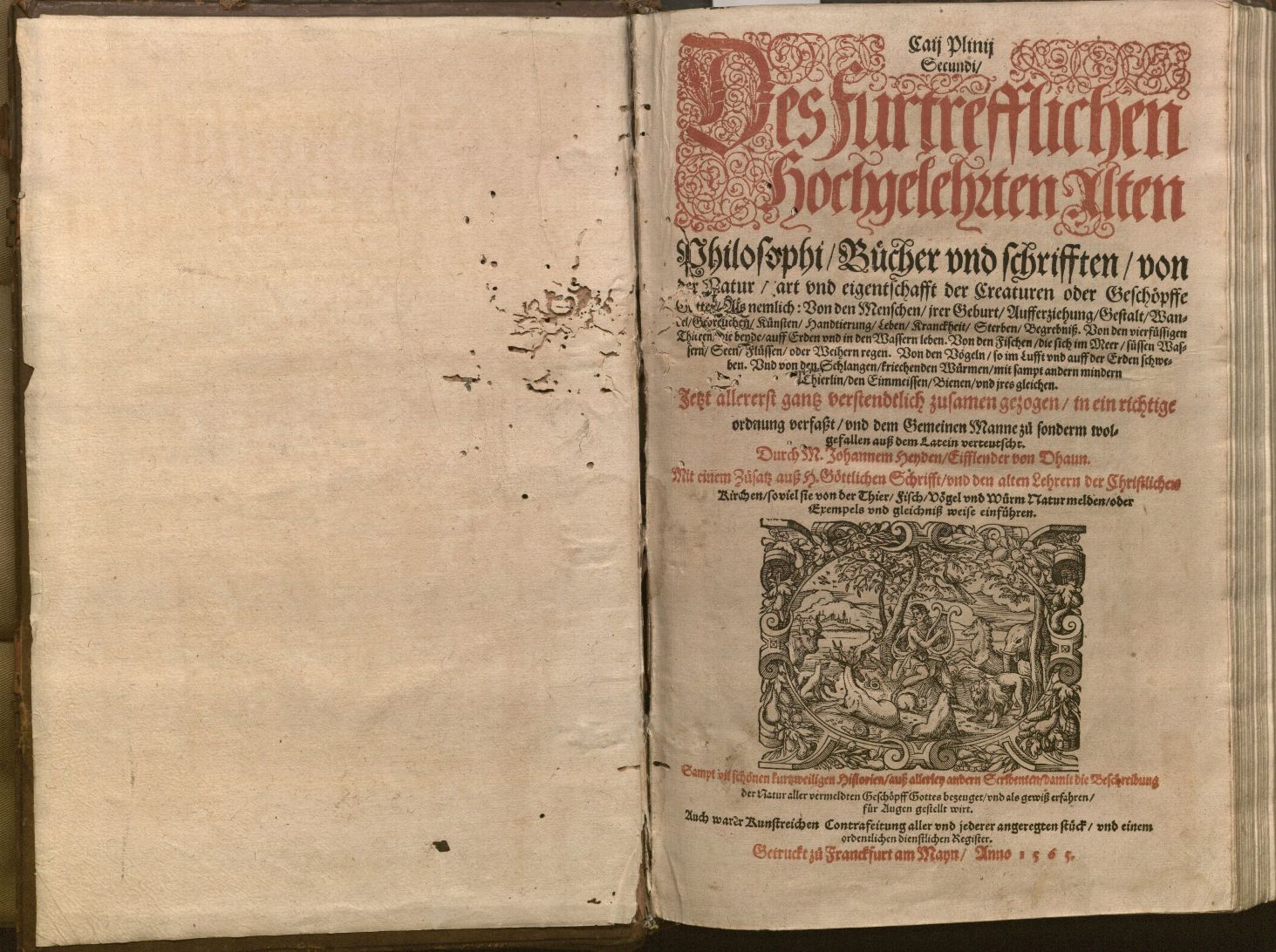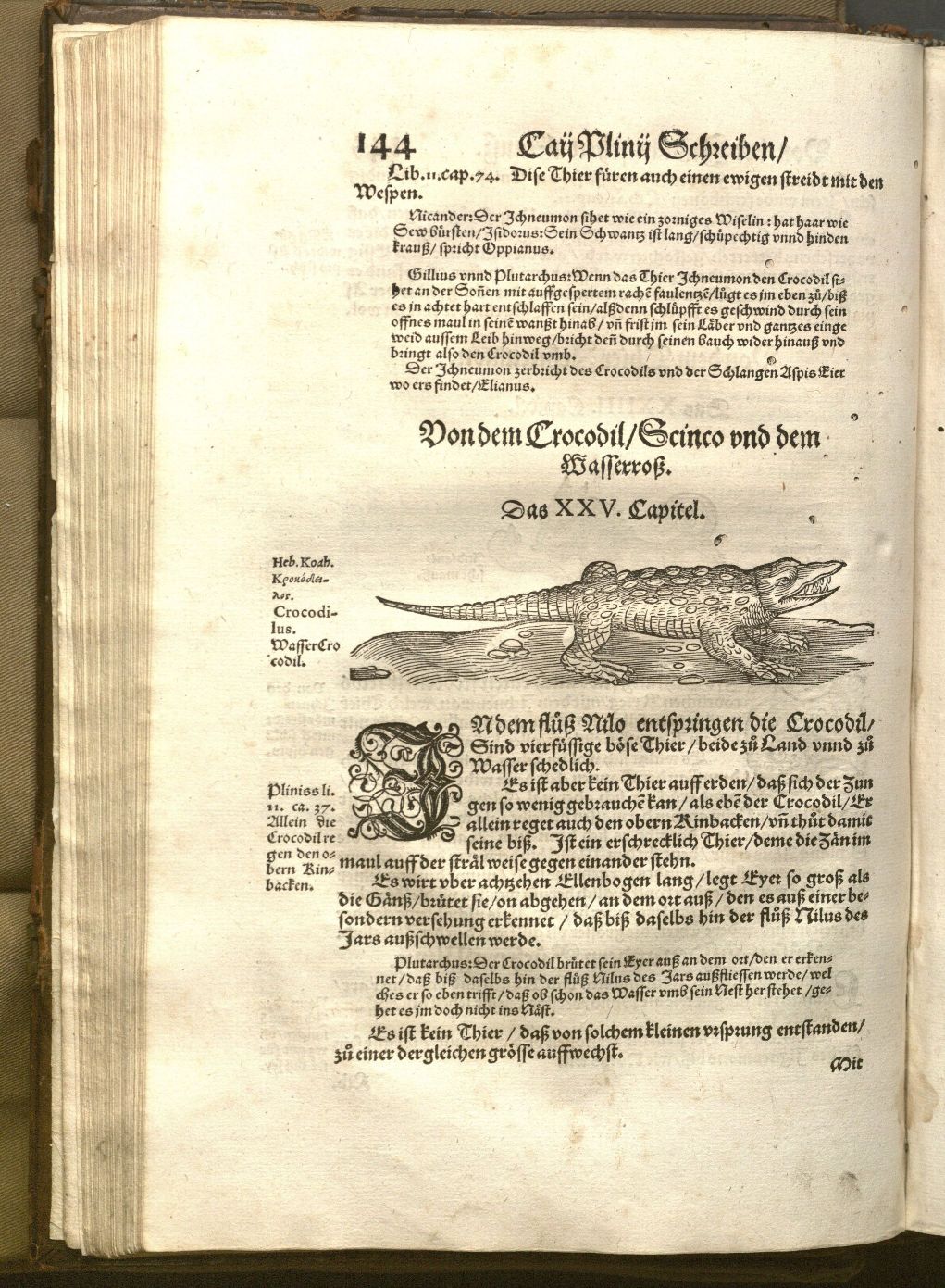Crispy Critters
Pliny the Elder, that most famous and trustworthy of the ancient Roman naturalists, was too curious about natural phenomena for his own good; as every school-child knows, he was asphyxiated by volcanic dust and gasses when he went to investigate the same eruption of Vesuvius that destroyed Pompeii in 79 A.D.
Aristotle and Pliny are the names that come to mind when we think of naturalists of the ancient world. Aristotle was the originator of biological classification; in contrast to the Biblical groups of animals as “clean” or “unclean,” he established categories based primarily on anatomical and other observable characteristics. His was a coherent natural system. The Spencer Library has several editions of Aristotle’s Historia Animalium, the earliest printed in 1493.
The only surviving work of Pliny is the encylopedic Naturalis Historia, the earliest extant manuscript of which dates from the 10th century.** His work was a compilation of all the animals and plants that he knew of or had heard about, and contained little that was original. He was not yet a systematist and there was little order in his arrangement, but we have him to thank for the survival of some of the writings of others, and he is regarded as THE authority on natural history from the days of Imperial Rome through the Middle Ages.
Pliny, the Elder. Caji Plinii Secundi … Bücher und Schrifften von der Natur, Art und Eigenschafft der Creaturen oder Geschöpfe Gottes … [Naturalis historia. German.] Franckfurt am Mayn : Feyrabend und Hüter, 1565. Call Number: Summerfield E1059. Click images to enlarge.
Beginning with the earliest printing of Pliny in 1469, there were at least 42 printings in numerous languages, including English, before 1536. The Kenneth Spencer Research Library houses 21 separate editions produced between 1476 and 1685. This German version contains books 7-10 and part of book 11. The translation was made by J. Heyden Eifflender von Dhaun and is illustrated with woodcuts by Jost Amman and Virgil Solis.
Sally Haines
Rare Books Cataloger
Adapted from her Spencer Research Library exhibit and catalog, Slithy Toves: Illustrated Classic Herpetological Books at the University of Kansas in Pictures and Conservations
**Author’s Note: This is the information we had at the time of publication of Slithy Toves in 2000; Mr. Roger Pearse has recently pointed out that in fact there do exist fragments of 5th century codices of Pliny.
Tags: Aristotle, Bücher und Schrifften von der Natur, classification, Crocodiles, Historia Animalium, J. Heyden Eifflender von Dhaun, Jost Amman, natural history, Naturalis Historia, Pliny the Elder, Sally Haines, Slithy Toves, Virgil Solis


